Getting Into: Rotting Christ

| Written by: | nikarg |
| Published: | August 29, 2021 |
The history of Rotting Christ begins in the mid '80s with bassist, Dimitris 'Jim' Patsouris, who had formed the band Black Church. He was good friends with the Tolis brothers, Sakis and Themis, and asked them to join his band. They later unanimously decided to change the name to Rotting Christ, which was also Jim's idea, and that choice would cause them many problems throughout their career. It is even safe to say that they probably would have been even bigger today if they had gone with something more conventional. Because of their name, Rotting Christ faced a witch hunt in the '90s by the local police who thought they were members of a satanic cult that performed unholy rituals and murdered people, they saw Dave Mustaine refusing to share the stage with them, they were forced to perform live under a fake moniker, and they were recently arrested and even spent time in jail in a foreign country.
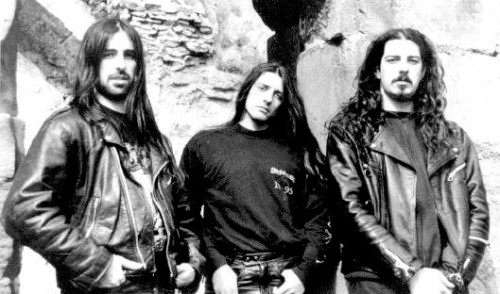
Rotting Christ started as a grindcore act because they mostly used to hang out with the punk crowd and the football hooligans. They also just wanted to make noise and grindcore seemed easy for them to play. In the beginning, they all had pseudonyms: Sakis Tolis (vocals, guitars) was 'Necromayhem', Themis Tolis (drums) was 'Necrosauron', and Jim Patsouris (bass) was 'Mutilator'. Sakis bought his first guitar in 1987 with money he had stolen from his parents and Themis did his drums practice on pillows; he would have to wait for another six or seven years to get his first kit. The members of Rotting Christ worshipped bands like Venom, Slayer, Possessed, Carcass, Celtic Frost, and Bathory. After a couple of grindcore rehearsal demo tapes and a split, they changed their style with the Satanas Tedeum demo, which was the true beginning of arguably the greatest extreme metal band from Greece.
Satanas Tedeum is the most important turn in the history of the band. Ditching grindcore for death metal with a blackened twist and diving deep in the occult and the apocryphal as far as the lyrics were concerned were both moves that defined Rotting Christ for the years to come. The sound here is horrible, the playing is clumsy, and the riffs are pretty basic but Satanas Tedeum is really heavy; it is mostly grinding death metal with black metal elements. The lyrics are satanic and mystical, but Rotting Christ were not devil worshipers; they were just embracing Satanism through an aesthetic point of view, at least according to Mutilator, the band's lyrics writer. The demo has some basic keyboard themes and the mere use of keyboards in extreme metal was not so common at the time; Tiamat's Johan Edlund was particularly impressed and he has publicly declared that this release immensely influenced his own band's sound.
Standout tracks: "Feast Of The Grand Whore", "The Nereid Of Esgalduin".
It took Rotting Christ two years to improve significantly as musicians compared to what they were on Satanas Tedeum, but the music can now finally be labelled 'black metal' even though the death metal element is still present. The band members are still no conservatoire musicians by any means but the songwriting and the atmosphere of this release are both unique and remain inexplicably and immensely mesmerising even today. The lineup addition of George Zacharopoulos or 'Morbid' (also known as 'Magus Wampyr Daoloth' or simply 'The Magus') was a key move (pun intended, he was the keyboards and piano player). Every metalhead in the underground had read the Necronomicon at the time but Morbid had dived deep in the subject of apocryphism and he was also a pioneer in the local black metal scene being the cofounder / vocalist / bassist of Necromantia. The riffs of Passage To Arcturo are doomy and evil, with Morbid's keyboards having this horror-inducing effect, evoking the music of films like The Omen and The Exorcist. The four members that took part in it still say today that something metaphysical was in the air while they composed and recorded that EP. It earned them a deal with Osmose Records, a label that was the home of bands like Samael, Immortal, Impaled Nazarene, Marduk, Absu, and Blasphemy. It was the deal that would become their first big break.
Standout tracks: Are you kidding me? The whole fucking thing is legendary.
Thy Mighty Contract is an iconic record that signified the real explosion of the Hellenic black metal sound; in the same year Varathron's His Majesty At The Swamp (with Mutilator on bass) and Necromantia's Crossing The Fiery Path were released. Bands like Kawir, Agatus, Zemial, and Nergal were formed around that time. Offering a largely different take on black metal than what was done in Norway and Sweden, Thy Mighty Contract is not as aggressive and menacing as northern black metal, but it is mostly apocryphal and mystical, taking influences from other metal styles, mainly heavy and doom, and it is shrouded in the darkest and most sinister atmosphere. The haunting riffs, the ritualistic keyboards, the deep-sounding drums, and the vocals that often come across as narrating texts from a book of spells are all elements that make Thy Mighty Contract an exceptional album and one of the most significant debuts in the history of black metal. Later versions include the amazing "Visions Of The Dead Lovers" as bonus track.
Standout tracks: "The Sign Of Evil Existence", "Transform All Suffering Into Plagues", "Fgmenth, Thy Gift", "Exiled Archangels", "The Fourth Knight Of Revelation".
Following the release of their debut LP, Rotting Christ embarked on their first European tour, the aptly named 'Fuck Christ Tour', with two other Osmose bands, Blasphemy and Immortal. Osmose then gave Jim Mutilator (who was the band leader at the time) a deposit for the recording of the follow-up to Thy Mighty Contract but Jim lost the money gambling. He didn't tell the truth to the other bands members but only said he had fallen out with the label owner. Rotting Christ consequently signed with a Greek label, Unisound, which was a big step back for them. Musically, Non Serviam is more melodic than the debut and with a more prominent presence of the lead guitar. The band is not afraid to compose longer songs and they are very successful at that, with "Wolfera The Chacal" and "Where Mortals Have No Pride" clocking in at over 7 minutes and being among the highlights. The title track has become a concert staple and is one of the most epic compositions in the history of the band. The production is somewhat sterile but the quality of songwriting is as high as in the debut, with abundance of memorable riffs; in fact, Non Serviam probably features more riffs than any Rotting Christ release. Some of the melodies are melancholic and hint at the more gothic approach the band would take with the next album. Non Serviam was unfortunately left almost entirely unpromoted by the label and as a result the band lost critical momentum. However, it gained recognition in the following years and is now rightly considered one of the band's best.
Standout Tracks: "The Fifth Illusion", "Wolfera The Chacal", "Where Mortals Have No Pride", "Non Serviam", "Saturn Unlock Avey's Son".
The minimal support from the label led to very few opportunities to play abroad live but Rotting Christ still managed to become the first foreign black metal band to perform in Israel. Jim and Sakis left Unisound and decided to travel by car to Europe and meet face to face with label representatives. Inside their luggage they carried a promo demo featuring the new songs "One With The Forest" and "The Opposite Bank" that would be later featured in Triarchy Of The Lost Lovers. The mighty Century Media Records offered them a contract and flew them to Germany to record with producer Andy Classen. Only the three founding members went though; Morbid decided to leave the band for various reasons, including his desire to focus more on Necromantia and his lack of enthusiasm towards the band's new sound. That left the core trio to record their most emotional album up until that time, hence its title. Rotting Christ's third full-length takes a step back as far as the black metal is concerned and it embraces an almost epic heavy metal style of songwriting with a lot of gothic ambiance. It is even more melodic than its predecessor, mid-tempo for the most part, and each song focuses on a restricted amount of riffs in stark contrast with what the band did in Non Serviam. For the first time, nothing needs to be tweaked, nothing is missing, nothing is overdone. The songwriting is outstanding, the atmosphere is compelling, the sound is engrossing, and the band is at their peak, both technically and inspirationally. Triarchy Of The Lost Lovers is Rotting Christ's best LP of the '90s and among the top-3 releases of their history.
Standout Tracks: "King Of A Stellar War", "Archon", "Snowing Still", "Diastric Alchemy", "The Opposite Bank". Generally, all killer - no filler.
After Triarchy Of The Lost Lovers hit the record stores, Rotting Christ went on tour with Samael and Moonspell who had just released Passage and Irreligious respectively. Halfway through that tour though, Jim quit the band due to family obligations - he was a father of two at the time - and only resurfaced again in a spectacular way in 2020 forming Yoth Iria with Morbid (yes, 23 years later!). Themis got depressed and left too. Sakis completed that tour by himself with session musicians. Rotting Christ was now a one-man band and this is how A Dead Poem was recorded; with Sakis composing everything - even the drum parts - and doing vocals, guitars, and bass. Themis returned to play the drums and Samael's Xy contributed by producing the album and playing keyboards. The music takes a turn towards pure gothic metal, it is very influenced by Moonspell and classic heavy metal, and it is very melodic. The vocals are still harsh but the music is fully emotional and quite far from the band's black metal roots. The intentions of Rotting Christ were obvious since they even changed their logo; they wanted to take a more commercial path and they succeeded. The album sold many copies but Sakis didn't compromise the quality of the songwriting to achieve that. In fact, this is one of Rotting Christ's most memorable albums. The cover art is dreadful though.
Standout Tracks: "Sorrowfull Farewell", "Among Two Storms", "Full Colour Is The Night", "Semigod".
Since A Dead Poem was so successful, it was only natural for Rotting Christ to continue on the same path. Sleep Of The Angels is the most controversial album in the band's career and it divided both fans and critics at the time. In the studio there was the same team that recorded A Dead Poem, and Sleep Of The Angels is a similar-sounding album to its predecessor, albeit a lot softer and a lot less inspired. The atmosphere is dark and depressive but the songs are sub-par for Rotting Christ's standards and Sakis has admitted that his sole focus was to build upon the commercial momentum the band had gained from the previous album. Moreover, there was a general gothic/darkwave madness infecting many extreme metal bands at the time. The problem with Sleep Of The Angels is not the style though; it's the songwriting. The first four tracks are the best ones - and "Victoriatus" is among the band's finest - but the songs have such a similar structure that not much stands out, despite the fact that the album is generally quite listenable. There are moments in the second half that are memorable, like the lead melody in the middle of "Sleep The Sleep Of Angels" or the outro of "Thine Is The Kingdom" but the album as a whole is mostly uneventful. At least the cover art was fantastic this time.
Standout Tracks: "Victoriatus", "Der Perfekte Traum".
Only one year after Sleep Of The Angels, arrived Khronos, and it was a much better album in every department. The band kept their gothic metal devotion; "Art Of Sin" could have been part of A Dead Poem, while "Khronos" feels like a more energetic version of the material on Sleep Of The Angels. However, they also incorporated some of the long lost black metal of their earlier recordings and they made that very clear by choosing the furious "Thou Art Blind" to open the album with. At the same time some industrial and EBM elements are introduced and these were very much in fashion in those days; Rotting Christ once again tried to keep up with the times, and you can hear that on songs like "My Sacred Path", "You Are I", "Glory Of Sadness", and in the hidden outro of the album's closer. The keyboardist George Tolias played an important role towards that industrial shift and he was the only person that recorded next to Sakis; his brother Themis was going through a second bout of depression and Khronos is the only Rotting Christ album that he had to sit out (a session musician recorded the drums). Rotting Christ was a band that seemed like it was rotting away (pun intended), with only Sakis being the person holding it together. However, Khronos is a return to form musically; a cold, raw, and aggressive album that owes much of its feel to the fact that it was recorded at Peter Tägtgren's (of Hypocrisy and Pain fame) Abyss studios in Sweden.
Standout tracks: "Thou Art Blind", "My Sacred Path", "Art Of Sin", "You Are I".
In the beginning of the millennium, Rotting Christ were losing popularity. While Khronos was a welcome return to the more extreme metal of yore, it went largely unnoticed compared to the two albums that came before it. Genesis was one step further towards the more extreme direction; introducing the start-stop motif that would become part of their trademark sound in the following years, it travels back to the roots of Rotting Christ more than Khronos did. The original logo returns on the cover art and the album features again the keyboards of George Tolias who is the only other member in the studio along with the Tolis brothers (yes, Themis returned). Genesis is an album for the longtime fans, the gothic element of the previous releases is almost non-existent and in its place there lies black metal. It is quite melodic, as evidenced by the chorus of "Nightmare", the synthwave tendencies of "Release Me" or the solo of "Dying", but it is still aggressive and has a strict, almost militaristic structure. The songs are generally competent but overall it somewhat lacks variety when compared to both its predecessor and its successor.
Standout tracks: "Lex Talionis", "Quintessence", "The Call Of The Aethyrs".
Sanctus Diavolos is a very significant album in Rotting Christ's career. It was mixed at Sweden's Fredman Studios by Fredrik Nordstrom and it retains the coldness of the previous releases. However, it introduces a lot of never used before symphonic, orchestral, and choir elements in the music, with the help and arrangement of Septicflesh's Christos Antoniou. The album is very diverse, with almost every song showcasing a different aspect of Rotting Christ's sound. Themis was not convinced with all the choirs but Sakis and Christos were spending a lot of time together at the time and the former gave the latter a lot of freedom to work on the orchestrations, which was uncommon for Sakis since he had dictated all by himself the sound of the band after Mutilator left. Rotting Christ promoted the album with the first world tour of their career, although they failed to play in their homeland; they were supposed to support Megadeth in 2005 in Greece but the born-again christian, Dave Mustaine, had other plans. In any case, this incident probably benefited them with extra publicity and the album in general had a great response. Sanctus Diavolos is a splendid record and their last for Century Media; it is so good that not even the most devoted fans could have predicted (or hoped) that Rotting Christ would actually top it three years later.
Standout tracks: "Visions Of A Blind Order", "Athanatoi Este", "Sanctimonius", "Serve In Heaven", "Sanctus Diavolos".
Despite the - fully deserved - success of Sanctus Diavolos, Theogonia is a departure from it and a new chapter in Rotting Christ's sound. It is such an important album that Sakis still hasn't managed to get over it to this day and has been trying unsuccessfully to recapture its majesty with every full-length released after it. The same choir that was used in the previous album is also present in Theogonia, but the symphonic elements are much fewer and in their place ethnic and folk passages have been added. All the songwriting, orchestrations, guitars, and synths as well as the production, mixing, and mastering of the album is Sakis's work. Traditional Greek music has an influence on this album and there is also a presence of the militaristic / ritualistic approach to drumming that would become a lot more frequent in the following albums. Lyrically, it mostly deals with Hesiod's Theogonia, the book that describes what Ancient Greeks believed about the creation of the world. Musically, it is an album full of energy, extremely melodic, and masterfully executed. It embraces diversity, going from the folksy "Nemecic", to the industrial-like, oriental, and dissonant "Enuma Elish", and from the epic "Phobos' Synagogue" to the blistering "Rege Diabolicus", which is my absolute favourite Rotting Christ song. Theogonia is fantastic in its entirety; in my opinion, it is the greatest melodic black metal album of all time.
Standout tracks: All songs rule but if you put a gun to my head, I'd choose "Χάος Γένετο (The Sign Of Prime Creation)", "Keravnos Kivernitos", "Enuma Elish", "Rege Diabolicus", "He, The Aethyr".
Aealo begins where Theogonia ends, adding many more folk and ethnic elements, and going as far as to use a women's choir, called Pleiades, specialised in polyphonic, traditional singing - check out "Nekron Iahes...", in particular (interestingly, Nekron Iahes or Νεκρών Ιαχές is the name of the spoken word/ambient project by Sakis Tolis and Andrew Liles of Current 93 that released their mini album, Oracle, earlier this year). As far as the music is concerned, the major success of Aealo is how the vocal and guitar harmonies often blend together to create a very melodic result. In terms of concept, 'Aealo' is using the Latin alphabet for the word 'Eάλω', which in turn is mostly known from the phrase 'Η πόλις εάλω' - 'The city has been captured' - and refers to the capture of Constantinople in 1453 by the Ottomans and the subsequent fall of the Byzantine Empire. With the exception of songs like "Santa Muerte" and "Thou Art Lord", the lyrical theme has a very Greek focus and the band went to a small studio very close to Mount Olympus for inspiration and recording purposes. Apart from Pleiades, many guests appear in Aealo, most notably Primordial's Nemtheanga, Horrified's Stavros Mitropoulos, Chaostar's Androniki Skoula, and even Morbid returned and contributed some vocals. But the absolute star is the Greek-American vocalist, keyboardist, and composer Diamanda Galás. The cover / adaptation / collaboration on the 9-minute chilling epic, "Orders From The Dead", tells the story of the horrific events that took place at the port of Ismir in 1922, before the end of the Greek-Turkish war, and the performance of Diamanda is soul-ripping. Aealo was generally very well received in Greece but not as much abroad. The album's themes raised questions about the band demonstrating nationalistic tendencies, a claim that is outright ridiculous and stupid for anyone who is even remotely familiar with Rotting Christ and what they have been standing for throughout their career.
Standout tracks: "Δαιμόνων Bρῶσις", "Fire Death And Fear", "Santa Muerte", "Orders From The Dead".
With two new members in the lineup, guitarist George Emmanuel (Lucifer's Child, Yoth Iria) and bassist Vagelis Karzis (Wolfheart), Rotting Christ were so confident of their new material that they released it with a title that no one - apart from the Greeks - could read or pronounce, while none of the tracks had an English title. 'Κατά Τον Δαίμονα Εαυτού' can be translated as 'Do What Thou Wilt', a phrase attributed to Aleister Crowley. Lyrically, it explores ancient civilisations and those civilizations' dark and apocryphal side. Musically, it is quite an uneven album. The first half is extremely catchy - albeit quite rehashing - every instrument is on point, and the tracks are all memorable. There are passages of sheer brilliance in this half; the moment in the middle of "In Yumen - Xibalba" when the band suddenly stops the blasting, Themis clicks his sticks together three times and they all go full speed again; the lead guitar melodies on "P'unchaw Kachun - Tuta Kachun" and "Grandis Spiritus Diavolos"; the wind instruments over the furious riffing and the blastbeats in the title track; and, finally, the splendid cover of the Romanian song "Cine Iubeşte Şi Lasă". The second half almost collapses under the weight of what came before it. Repetition is the main problem and the songwriting is not as engaging, with the exception of the doomy closer "Χξς'" and the bonus track "Welcome To Hel". The mix and mastering was done by Jens Bogren and the sound of this album is fantastic, oozing power and clarity.
Standout tracks: "In Yumen - Xibalba", "Cine Iubeşte Şi Lasă", "Κατά Τον Δαίμονα Εαυτού", "Χξς'".
Live albums are mostly uninteresting but Lucifer Over Athens is not. At that point, Rotting Christ had been active for more than 25 years in the metal scene and had played countless shows in every little corner of the planet. Recorded in December 2013 in Athens, the setlist is full of fan favourites while paying tribute to all phases of the band. It takes us back to their early demo days and brings us right up to Rotting Christ's more recent moshpit burners. It is highly recommended as an overview of the band's career, even though it is only partly indicative of what kind of mayhem they induce when they are on stage. Like most live albums, it doesn't really convey the electricity of the live setting but it gives you a hint at least. Make sure you listen to "Societas Satanas" (a track by Thou Art Lord, a band formed by Sakis and Morbid), the best black/thrash song ever.
The lyrical subject matter expansion that was observed on Κατά Τον Δαίμονα Εαυτού became a full-fledged, multicultural extravaganza on Rituals. The album's main contributors are again Sakis and Themis but there is a large number of guests featured and some of them are very high profile ones. The atmosphere is dark and ritualistic and the band's promo photos emphasize the obscure direction of the album. The theme focuses on rites and myths from all around the globe and, while this is all very interesting, the music does not live up to it. Rituals is often monotonous, with very few of the Rotting Christ trademark melodies and with way too much use of those repetitive drum patterns and riffs that the band had already done excessively up until that point. The vocals do take the front seat, with Morbid (Necromantia), Nick Holmes (Paradise Lost) and Vorph (Samael) adding something extra to "In Nomine Dei Nostri", "For A Voice Like Thunder", and "Les Litanies De Satan" respectively. However, the haunting vocals of Danai Katsameni on "Ἐλθὲ Κύριε" are those that steal the show. The sound is once again huge but not enough to save the album from its mostly unspectacular music material.
Standout tracks: "זה נגמר (Ze Nigmar)", "Ἐλθὲ Κύριε (Elthe Kyrie)".
Staying loyal to the modern Rotting Christ tradition of releasing an album every three years, The Heretics came out in 2019. It is also based on a single concept and this time the theme is heretic minds. The songs refer to writers, poets, and philosophers that were too unconventional for their time; Voltaire, Edgar Allan Poe, John Milton, William Shakespeare, Nikos Kazantzakis, and others. Once again the theme is much more interesting than the music. Despite the welcome presence of more familiar Rotting Christ riffs and melodies, and the fact that the drums showcase some more liberty compared to Rituals, The Heretics is the band's most recycled album to date. It is hard to find anything that they haven't played before and on top of that the lyrics are annoying with the words 'fire', 'pyre', 'empire' 'desire' being repeated to death. Sakis and Themis were already having conflicts during the Rituals' recordings because of the former's obsession to write the same music again and again, and on The Heretics this conflict escalated to the point that Themis recorded the drums by himself without Sakis being in the studio. That did not change the direction of the album of course since Sakis has been the only one who writes music since the departure of Mutilator with very few exceptions. This is Rotting Christ's most disappointing full-length with one of its two best songs being "The Sons Of Hell", a bonus track reminiscing of their glorious Triarchy Of The Lost Lovers / A Dead Poem days. Anyone who has listened to Theogonia and the albums after it will easily pinpoint copy-paste passages on more than half of The Heretics' material.
Standout tracks: "The Raven", "The Sons Of Hell".
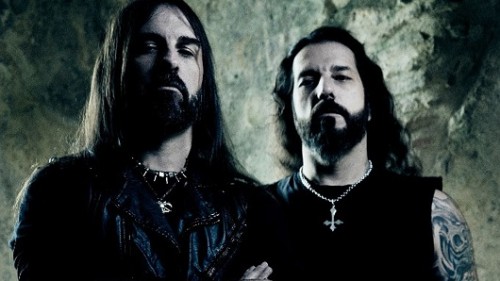
So there it is, a brief (?) account of Rotting Christ's basic discography with some of their story to go with it. Historical information was assembled from my own memory of things, band interviews, published articles, and the book Non Serviam: The Official Story Of Rotting Christ, written by Sakis Tolis and Dayal Patterson.
Rotting Christ were the first black metal band from this South-East corner of Europe, the ones that created and defined the classic 'Hellenic Black Metal' sound. If you want to know where to go from here, there are mentions of bands and albums that you might be interested to check out throughout the article. Like all local metal scenes, the Greek scene is full of bands that share members, sounds, and influences. And Rotting Christ have had many shifts in their long career, even though they lately seem to be stuck in a certain motif, milking a cow that has no milk left to give. The band is a joy to watch live, one of the most energetic and uplifting acts in extreme metal worldwide. They have been touring incessantly for years now and 'lazy' is the last word someone would use to describe them. They have played in every part of the world and this Covid-19 situation must have been a great strain for them both financially and psychologically because I know for a fact that the stage is their natural habitat. On the positive side, I am optimistic that all this free time without the excessive touring that is the norm for his band may have given Sakis the inner tranquillity and space for him to come up with one more grand release. It is long overdue.
 | Written on 29.08.2021 by Only way to feel the noise is when it's good and loud! |
Comments page 2 / 2
- 1
- 2
Comments: 44
Visited by: 238 users
| F3ynman Nocturnal Bro Contributor |
| AndyMetalFreak A Nice Guy Contributor |
| Karlabos |
| AndyMetalFreak A Nice Guy Contributor |
| nikarg Staff |
| AndyMetalFreak A Nice Guy Contributor |
| Karlabos |
| AndyMetalFreak A Nice Guy Contributor |
| RaduP CertifiedHipster Staff |
| AndyMetalFreak A Nice Guy Contributor |
| nikarg Staff |
| AndyMetalFreak A Nice Guy Contributor |
| Netzach Planewalker |
| nikarg Staff |
- 1
- 2
Hits total: 9284 | This month: 263



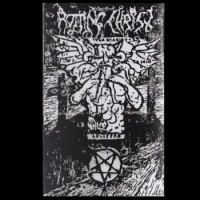










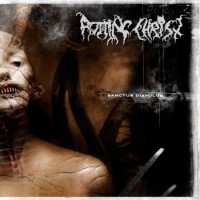

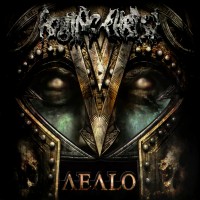
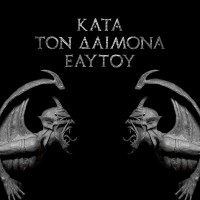
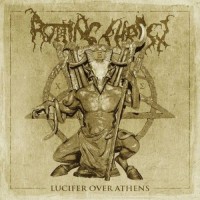
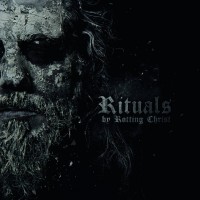
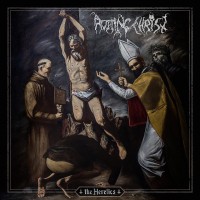
 !
!


 I remember listening to one of those bands listed here called
I remember listening to one of those bands listed here called